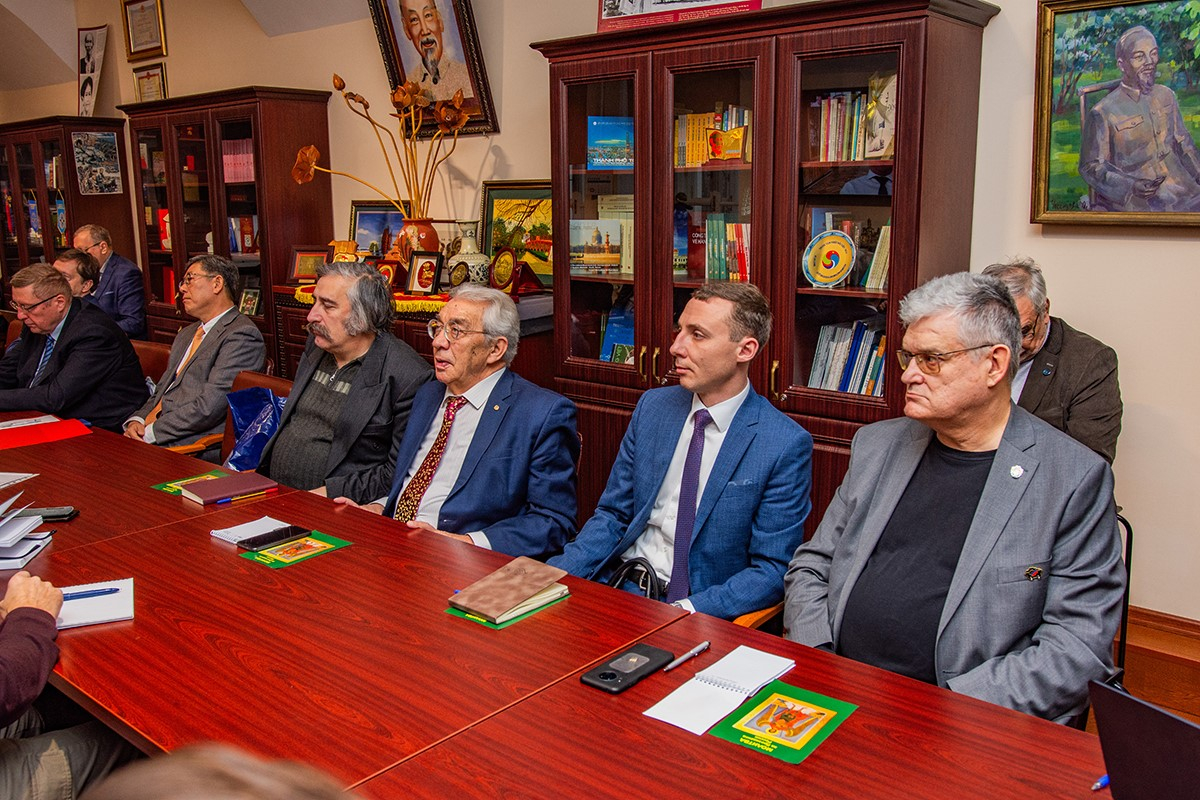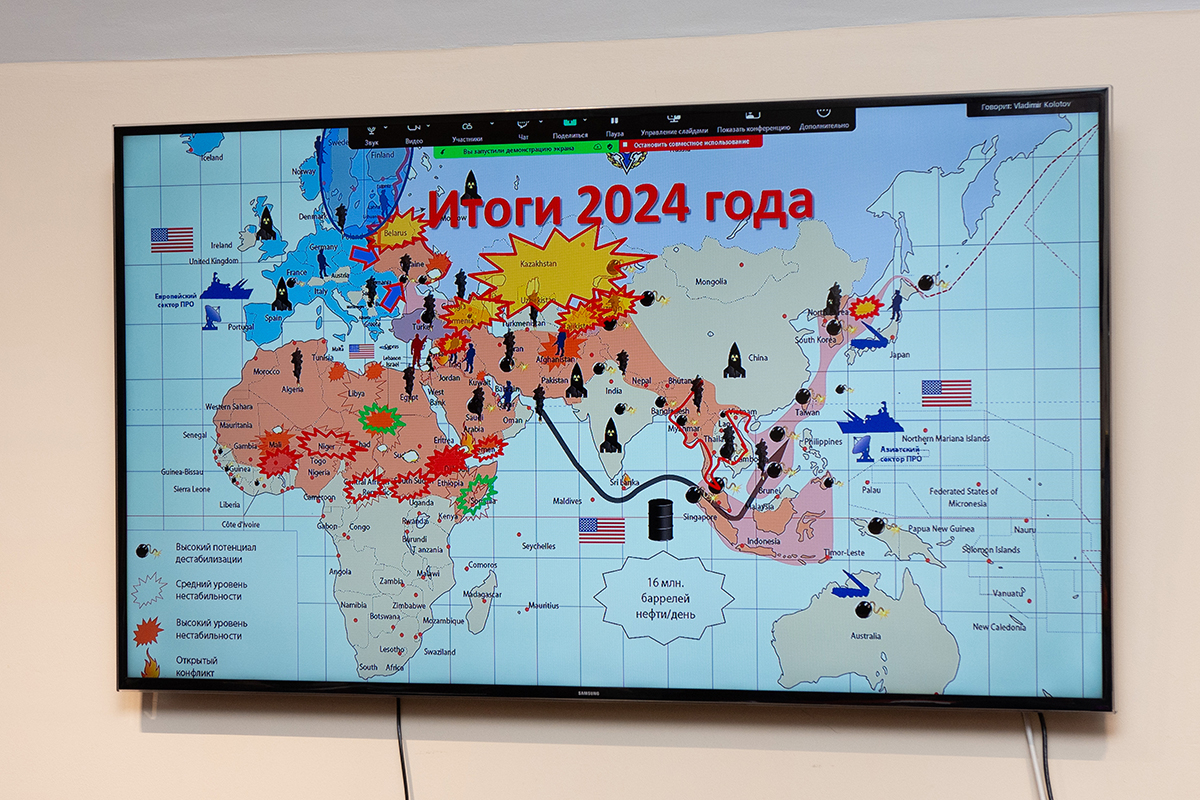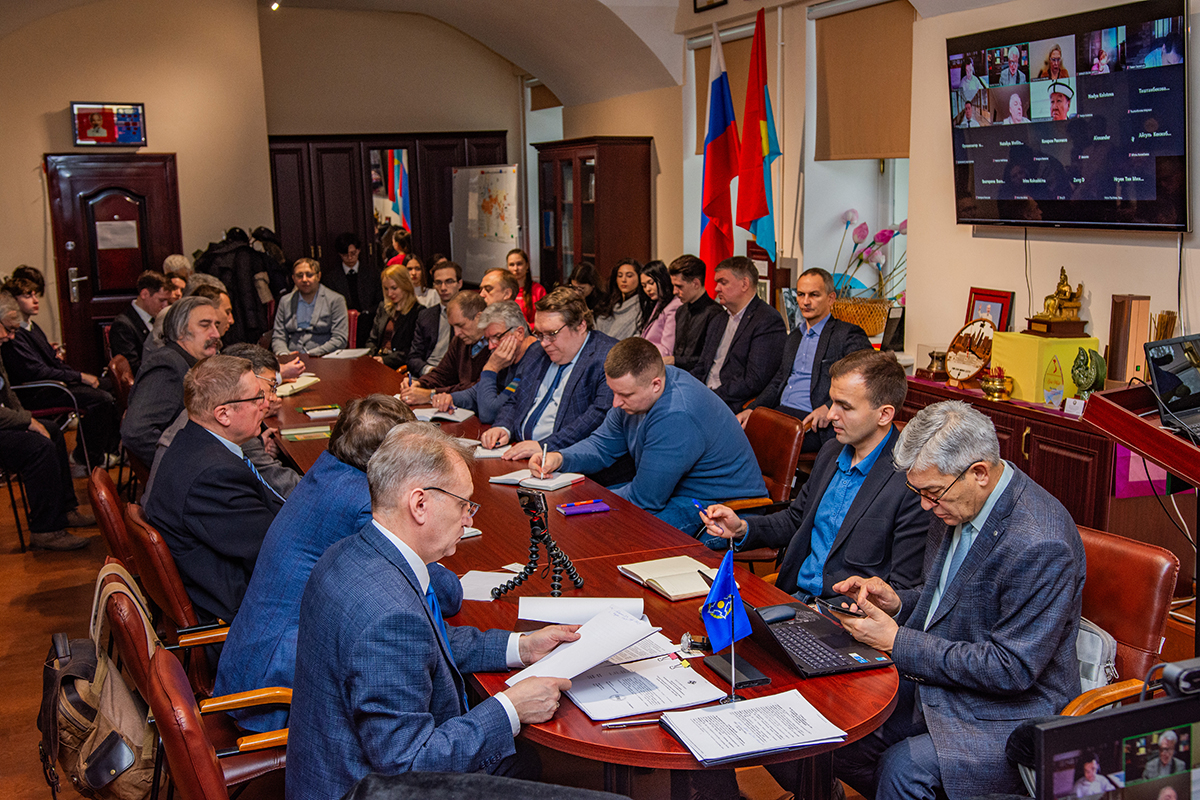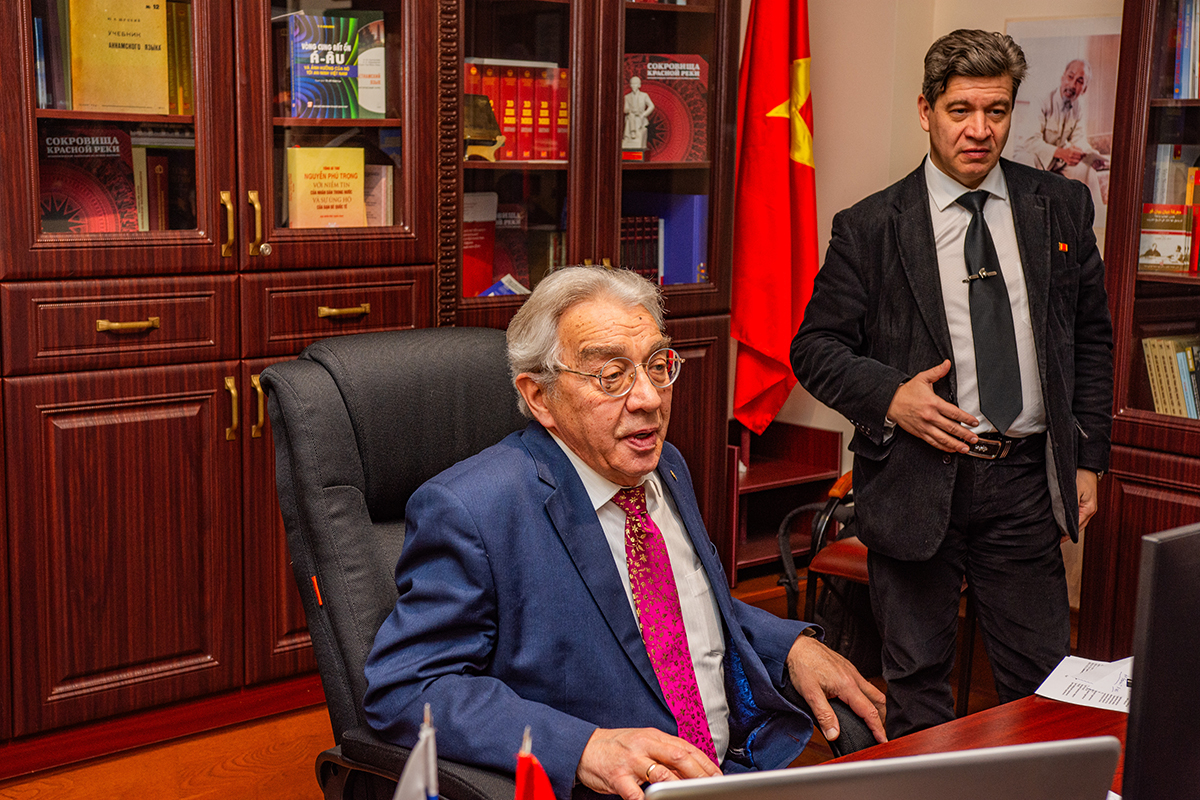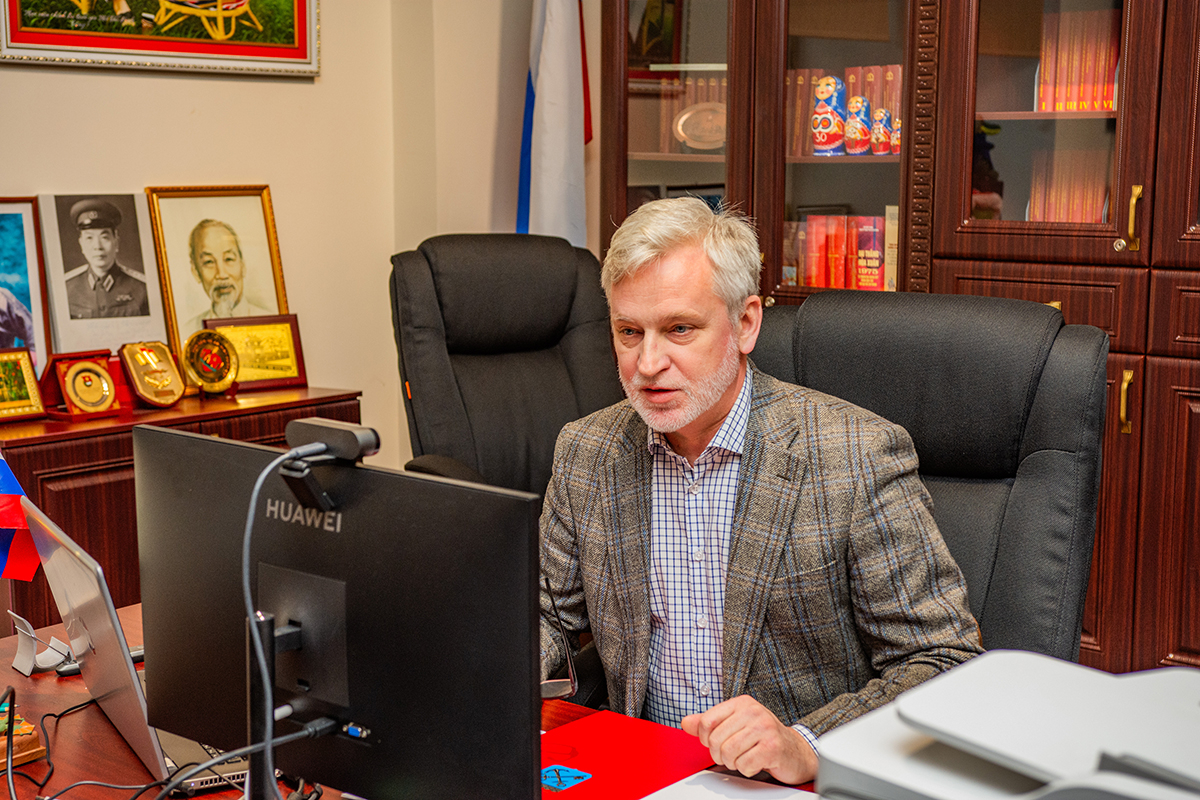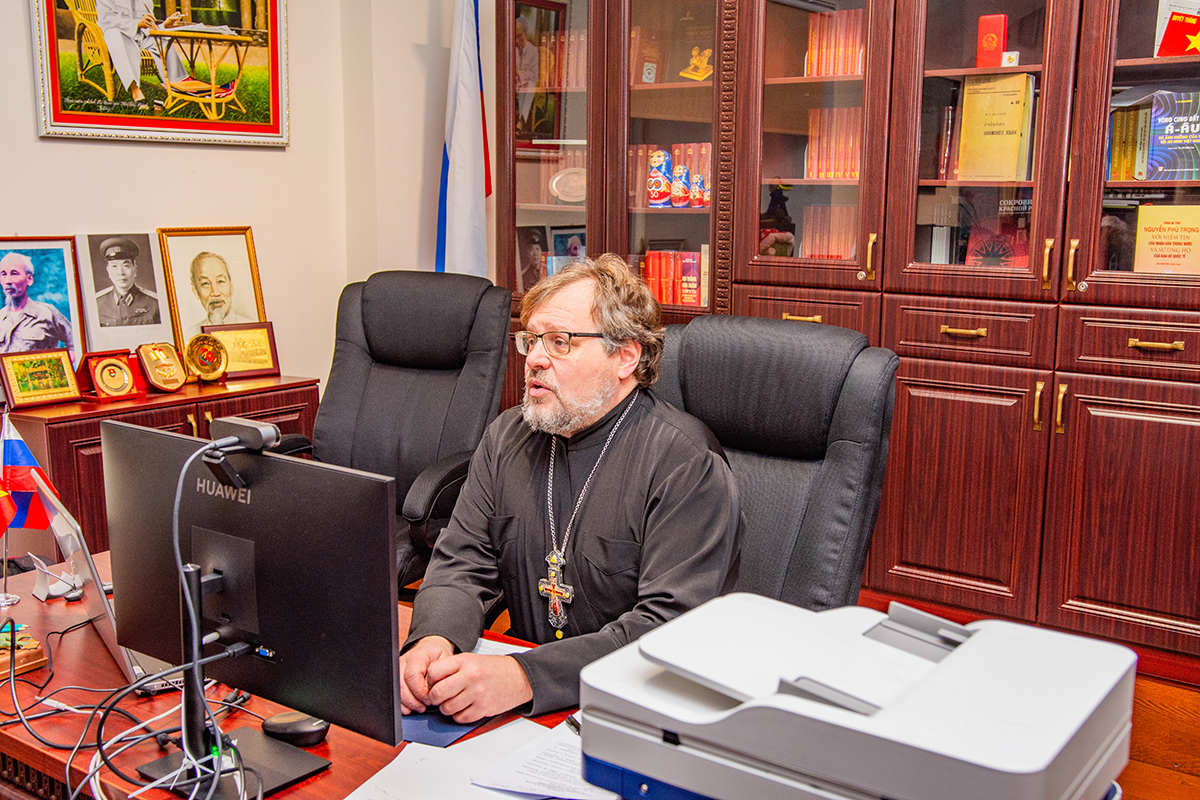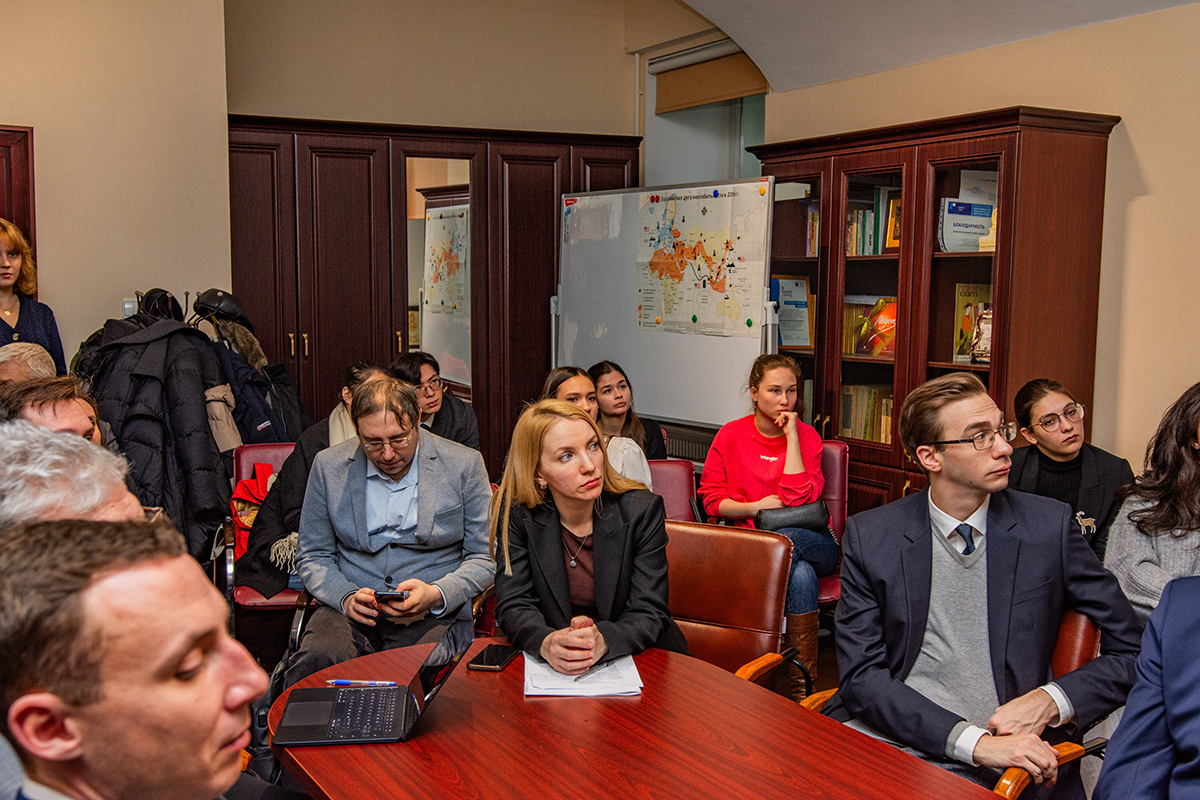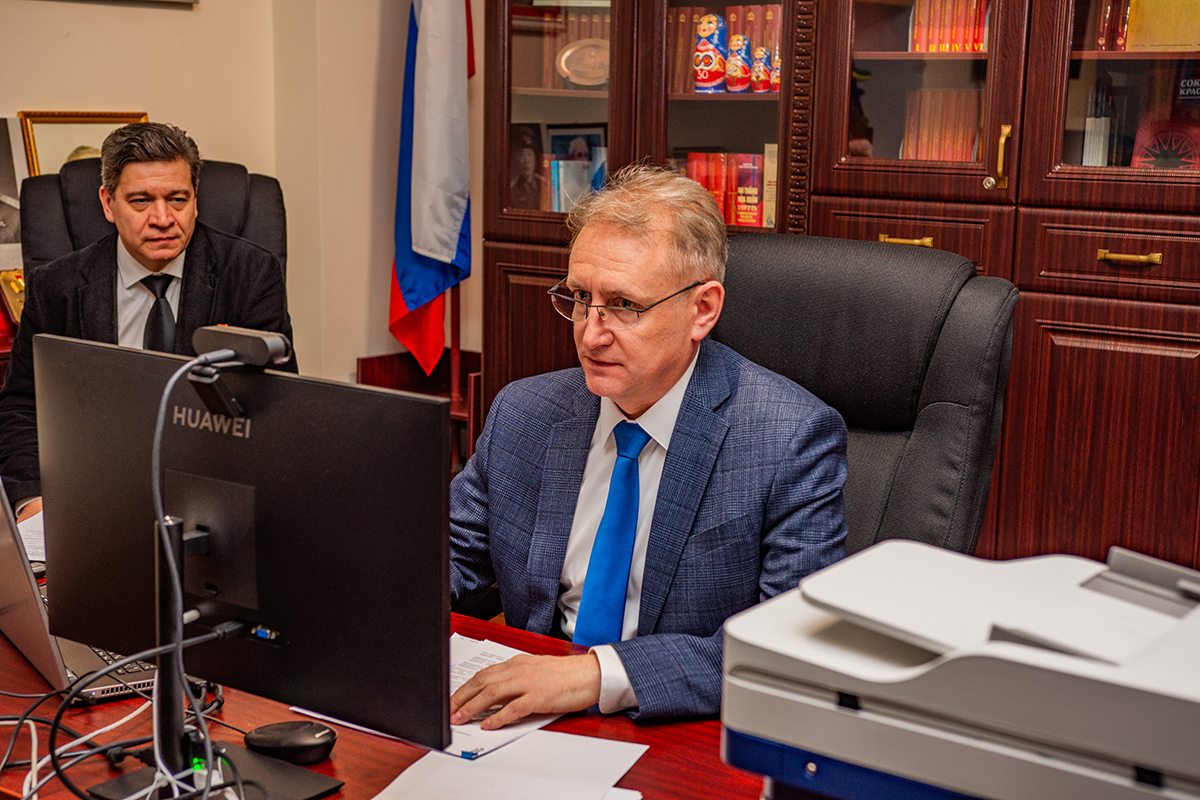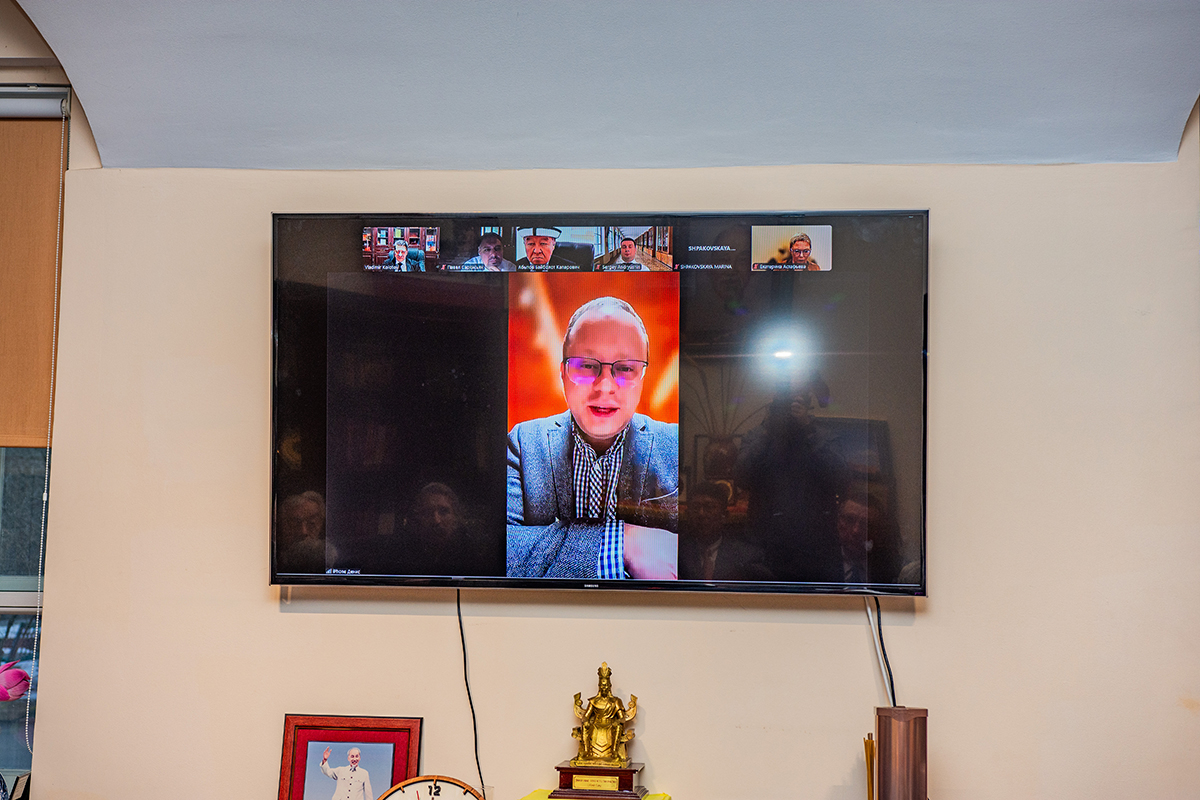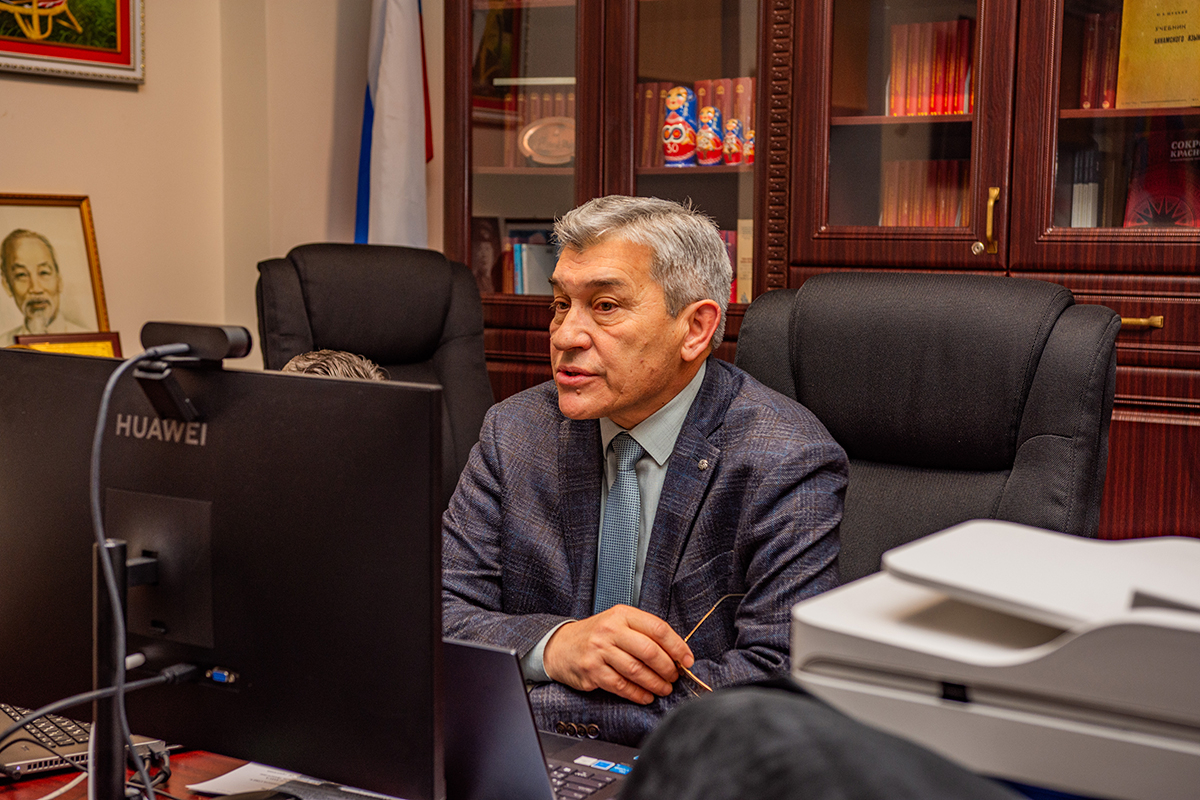More than 40 speakers at the conference on Russian border security
St Petersburg University has held the 15th annual international conference "The Eurasian Arc of Instability and Regional Security Challenges from East Asia to North Africa: Geopolitical Outcomes of 2024."
Sergey Andryushin, Vice-Rector for International Affairs at St Petersburg University, focused on the global nature of the conference and broad geography of its participants.
St Petersburg University is a large expert platform. It is strong in large part due to the contribution of our researchers and participants in the University’s events: researchers from other Russian and international universities. It hugely impacts how we can develop our academic potential and contributes to formulating decisions that benefit foreign policy of our country and other countries.
Sergey Andryushin, Vice-Rector for International Affairs at St Petersburg University
The need to acquire forecasting skills in the current geopolitical situation was discussed by Professor Vladimir Kolotov, Head of the Department of History of the Far East Countries, Director of the Ho Chi Minh Institute. "In 2012, when the conference just started, we often heard an opinion that we were surrounded only by friends and that there were no arcs of instability," said Vladimir Kolotov. "Yet, time has shown that many of the forecasts voiced at our conference are correct."
Viacheslav Sanin, Advisor to the Governor of the Leningrad Region, focused on the importance of the conference topic not only from a retrospective, but also from a practical point of view. Historically, the lands of the Leningrad Region have been a place of cultural interaction, disputes and struggles between neighbouring regions. "We have been always witnessing how geopolitical tectonic plates have been shifting," said Viacheslav Sanin. "During these shifts, the opinion of the expert community is more in demand than ever. It is essential to have a deep understanding of what is happening in the world in order to make the right management decisions."
The threats that have arisen in the North-West of Russia following the recent accession of the Scandinavian countries to NATO were analysed by Pavel Sargsyan, a representative of the Secretariat of the Collective Security Treaty Organization (CSTO). He offered an analysis of the actions and possible plans of the North Atlantic Treaty Organization.
The north-eastern flank of the alliance is of great importance, both in geostrategic, military and economic terms for the implementation of the plans of the US and NATO to transform the alliance into a global tool for advancing the interests of the collective West.
Pavel Sargsyan, a representative of the CSTO Secretariat
Denis Chetyrbok, a member of the Legislative Assembly of St Petersburg, Chairman of the Budget and Finance Committee, spoke about what measures the Northern capital of Russia is taking to ensure the security of our country. "We are living in a unique time," said Denis Chetyrbok. "The essence of the confrontation is changing. Now it is hybrid: it is both on the battlefield and in the information space. As a result, what analysis scientists can make is more essential than ever."
Nikolay Plotnikov, retired Major General, Professor of the Institute of Oriental Studies at the Russian Academy of Sciences, was particularly concerned with the future of the country and what ways to combat the threats we can develop. He spoke about the situation in Europe and the Middle East and assessed the prospects and possible vectors for the development of events in 2024 and what impact they may have on the security of Russia and the CIS countries in future. "Today, the main beneficiaries are the United States, Türkiye, and Israel," concluded Nikolay Plotnikov. "The 21st century is an era of struggle for resources, so these countries will not lag behind Russia."
Migration issues were raised by Vyacheslav Kocharyan, a representative of the Secretariat of the CSTO Parliamentary Assembly, who mentioned destabilising socio-economic factors, such as the emergence of ethnic and interethnic conflicts on the territories of the countries, a decline in welfare, and an imbalance between the urban and rural population to name just a few.
Alexander Pelin, Chairman of the Department for Church and Society Relations of the St Petersburg Diocese, discussed the religious situation in the post-Soviet republics. He particularly focused on the total destruction of the Ukrainian Orthodox Church, the difficult situation with Orthodox organisations in the Baltic countries and the continuing independence of the Belarusian Orthodox Church. According to Alexander Pelin, what remains unsettled is the situation in Abkhazia, where there is a surge of interest in neopaganism against the backdrop of confrontation with Georgian religious organisations, and the situation in Azerbaijan, Armenia and on the Athos peninsula in Greece.
Dmitrii Mosiakov, Professor of the Institute of Oriental Studies at the Russian Academy of Sciences, spoke about the main global trends in the development of world politics and economics, focusing on the replacement of the previously prevailing global model of globalisation with a new concept of building "empires", i.e. major players as strong states. "We are in a transitional period when the role of the individual in history is increasing," he explained. "The leaders are trying to transfer their fantasies into reality, and the world has to react." He also analysed a dangerous trend of militarisation and military construction observed in the countries of East Asia, the situation with the Association of Southeast Asian Nations (ASEAN) and the disappearance of the trend to find a compromise between the countries of the region.
The circle of instability that we have been discussing at the conference since 2012 is gradually turning into a ring. I once called this phenomenon the "Kolotov ring".
Igor Kefeli, Director of the Centre for Geopolitical Expertise at the North-West Institute of Management of the Russian Presidential Academy of National Economy and Public Administration (RANEPA St Petersburg)
To gain a deeper understanding into the current situation, the expert analysed the materials of the World Economic Forum, which takes place in Davos. He assessed the geopolitical recessions as prerequisites for the deterioration of the well-being of the population. He also mentioned emerging unwillingness to solve global problems and a tendency to put them off on the shoulders of the future generation.
The plenary reports were summed up by Professor Vladimir Kolotov, Head of the Department of History of the Far Eastern Countries at St Petersburg University, Director of the Ho Chi Minh Institute. He described the main parameters of how the security situation can change along the Eurasian system of instability arcs in 2024.
In his analysis, Professor Vladimir Kolotov followed the theory of the arc of instability developed by the KGB Major General Yuri Drozdov. In those years, the arc of instability was located from the Horn of Africa to Western China, which he called "Pipelineistan". Professor Vladimir Kolotov showed how the theory of the Pentagon’s full-scale dominance spread to neighbouring and more distant regions in order to prevent the resources of Russia and Asian countries from penetrating into European and African countries. Having traditionally demonstrated the current configuration of the European system of arcs of instability on an interactive map, Professor Kolotov described the current situation and new lines of conflict that have arisen in the Far East, the Caucasus, the Arctic, and Central Asia. He predicts that the situation will not resolve itself, but will only become more complicated. The priority remains to divert Moscow’s forces to the Eastern European segment with the aim of changing the balance of power in the Middle East (in Syria) and Caucasus (in Armenia) segments and attempts by NATO forces to "block" the Baltic Sea through provocations.
At the moment, we are responding peacefully to non-peaceful threats, to the radical restructuring of the Eurasian space, during which several segments of the Eurasian system of arcs of instability are being simultaneously activated. In the near future, new participants will be attracted, and the game will begin on new chessboards, which means that we should pay more attention to the fundamental laws of war and strategy.
Vladimir Kolotov, Professor of St Petersburg University
The plenary session was followed by active discussions in three sections. One of the sections focused on the East Asian segment of the Eurasian arc of instability. The second section discussed the problems in the African and Middle Eastern segments. Global and regional security issues were also considered.
These issues will be further discussed at the 33rd International Congress on Source Study and Historiography of Asia and Africa, which will be held from 16 to 18 April 2025. The event will feature the round table "Russia and the East: the current state of the system of instability arcs."


